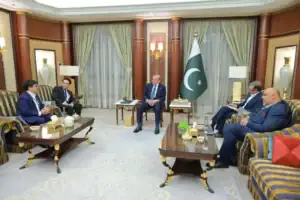Islamabad, 15, May, 2025: Used Car import regulations in Pakistan are under review as the government explores key reforms in the automobile sector, potentially allowing vehicles up to five years old to be brought into the country.
The policy shift, being considered in line with International Monetary Fund (IMF) recommendations, aims to make the local market more competitive and accessible.
At the heart of the proposed changes is a plan to ease existing restrictions on vehicle imports. Currently, used car imports are limited to three-year-old vehicles, while sport utility vehicles (SUVs) can be imported if they are up to five years old.
READ MORE: Electric Mini Cars for Adults: Prices & Specs
Authorities are now assessing the feasibility of expanding the five-year limit across all categories.
IMF-Backed Reforms Under Discussion
As part of broader economic strategies supported by the IMF, Pakistan’s financial planners are reviewing several key policy adjustments.
These include eliminating regulatory duties, slashing tariffs on Completely Built-Up (CBU) vehicles to under 10 percent, and reducing overall automobile import duties to single-digit figures over the next five years.
The consideration to liberalize used car imports is expected to be incorporated into the forthcoming federal budget.
Officials familiar with the discussions have suggested that such reforms are necessary to meet IMF conditions for continued financial support, especially amid economic recovery efforts.
Potential Impacts on Local Industry
While these changes may offer more choices to consumers and potentially lower vehicle prices, they also pose risks for local car manufacturers.
READ MORE: BYD Electric Cars: Pakistan’s Smart, Sustainable Choice
Experts warn that a surge in imports could inflate the national import bill and place pressure on domestic production lines, which may struggle to compete with a wider array of international options.
Nonetheless, government insiders maintain that the proposed amendments are intended to balance consumer benefit with sustainable economic development.
The final details of the policy, including timelines and tariff structures, are likely to be unveiled with the release of the national budget next month.









